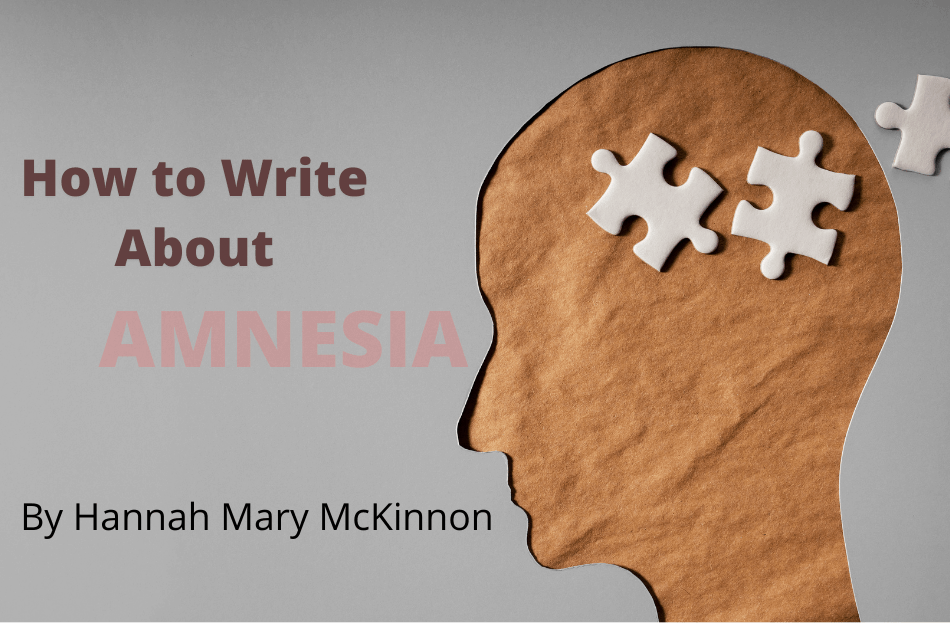So, your character has amnesia?
No doubt about it, I’m a plotter. I have a tried and tested process that works for me, and which I refine and streamline with each novel I write. No surprise then, that when I sat down and typed “Chapter 1” for my fifth novel, psychological thriller You Will Remember Me, I went in believing I was prepared.
Turns out, I wasn’t. One of my point-of-view characters, who carries an equal third of the book with two others, has amnesia and the story starts with him waking up on a beach not knowing how or where he is. The weeks I’d spent plotting and developing my characters hadn’t prepared me for how hard it would be to write a protagonist who couldn’t know the backstory I’d so carefully crafted for him, or to whom I couldn’t allow a single memory for most of the book. It’s probably one of the trickiest plotlines I’ve handled, and if you’re thinking of including an amnesiac character in your next project, here are some tips and tricks I hope will help you avoid at least part of the frustrations I experienced.
Should they be a point-of-view character?
This may be an obvious question, but it’s a big one and merits debate. If you can tell their story via another character’s point-of view entirely, you’ll more than likely make your writing journey much easier. Then again, an amnesiac point-of-view character can take the level of intrigue and mystery to another level. You’ll take your reader inside their head, enabling them to better imagine what losing one’s memory could be like, and you’ll make them feel the angst and despair. It’s a compelling plot device and can be extremely effective, which is no doubt why it remains popular.
How will the reader discover your character’s history?
Having scene after scene where someone tells your character their entire history will most likely not make for interesting reading, so how does your amnesiac learn about themselves? You could make use of a non-linear timeline, as Ruth Ware did in her smash hit debut A Dark, Dark Wood, in which protagonist Clare has chapters set in the past and present, slowly revealing her story that way. An alternative might be diary entries, a device S.J. Watson employed in Before I Go to Sleep. Whatever the case, your amnesiac character will have to rely on others to reveal their history, just make sure it’s not all in one go. Facts and anecdotes sprinkled throughout the manuscript can give the reader plenty to understand your memory challenged character’s background, and they can effectively take the discovery tour together.
What kind of amnesia do they have?
These are the three main buckets:
– Retrograde amnesia: where your character loses previously formed memories.
– Anterograde amnesia: where your character can’t form new memories.
– Transient global amnesia: where your character experiences a sudden, temporary interruption of short-term memory.
And to switch things up a little more, take a look at confabulation. This is where your character has memories that aren’t only incorrect, but 100% made up, except they believe them to be true. It’s the brain’s way of filling in the blanks.
What’s the cause of their amnesia and how do they handle it?
Amnesia can have many origins. Illness, disease, stroke, injury, psychological trauma, to name a few. Add to that the fact amnesia affects people in different ways, and it leaves the author a lot of room to play not only with causes, but how it affects their characters. They may be terrified, frustrated, or angry—perhaps a combination of all three—they may become depressed. Again, there’s a lot of scope here to develop your story and your character. Concentrating on how they’re feeling in the present, how their state of mind affects them emotionally will all give readers excellent insight and understanding of who they are now.
Will they regain their memory? If so, how?
Could a single event, a cherished item or a person trigger a flood of memories, as is often the case in movies? Will you let them regain part of their memory, or nothing at all? Do they need to have it come back? Is it too convenient and “Hollywood-esque” if they do? Is it more ominous if they don’t remember, even at the end? By playing around with how, when, and if their memory returns, you may develop different plotlines and endings you hadn’t previously thought of.
Study real-life examples
This article from LiveScience lists 17 different amnesia cases, including the one and only Agatha Christie. Even if you’re not writing about memory disorders, it’s well worth a read.
Read fiction
As well as the two books mentioned above, have a look at what these authors chose to do:
– The Life Lucy Knew by Karma Brown
– What Alice Forgot by Lian Moriarty
– The Bourne Identity by Robert Ludlum
– The Girl on the Train by Paula Hawkins
– The English Patient by Michael Ondaatje
– We Were Liars by E. Lockhart
Goodreads has excellent lists of books filled with amnesiac characters, so be sure to check those out.
Extensively plotted or not, writing You Will Remember Me turned out to be a massive challenge, and while it stretched me as an author, I got there in the end by going over the points above and reworking my plot until it clicked. That’s an experience I can build on for everything else I write in the future.
Have you tackled the amnesia trope? How did you manage it? What other aspects did you consider? Conversely, have you shied away from having an amnesic character, if so, why? Let’s talk about it on the Career Authors Facebook page.
 Hannah Mary McKinnon was born in the UK, grew up in Switzerland and now lives in Canada. After a successful career in recruitment, she quit the corporate world in favor of writing. She lives
Hannah Mary McKinnon was born in the UK, grew up in Switzerland and now lives in Canada. After a successful career in recruitment, she quit the corporate world in favor of writing. She lives with her husband and three sons. You Will Remember Me is her fifth novel. Connect on Facebook and Instagram @HannahMaryMcKinnon, and on Twitter, @HannahMMcKinnon, and visit www.hannahmarymckinnon.com
with her husband and three sons. You Will Remember Me is her fifth novel. Connect on Facebook and Instagram @HannahMaryMcKinnon, and on Twitter, @HannahMMcKinnon, and visit www.hannahmarymckinnon.com





